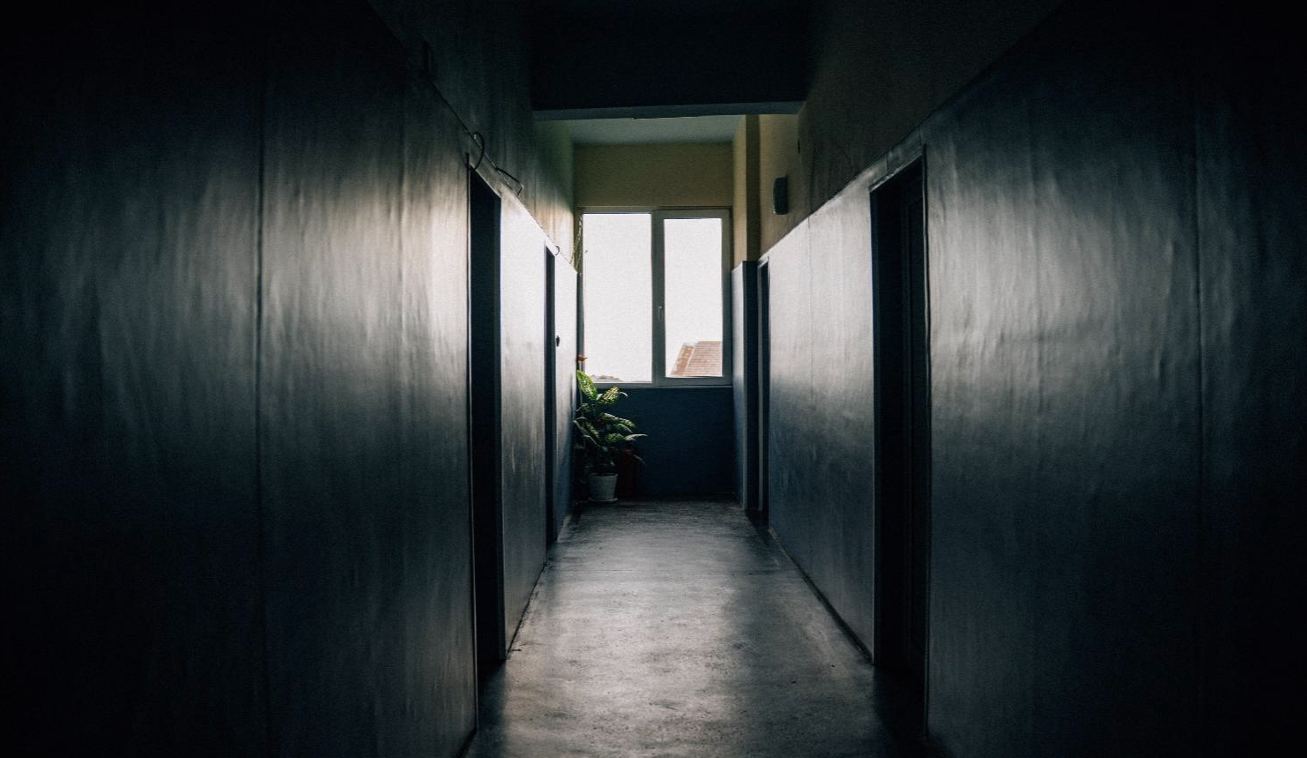By Dea Eremashvili
Thousands of people have been protesting in Georgia for more than 40 days. The demonstrations broke out after de facto PM Irakli Kobakhidze postponed EU membership talks until 2028.
As of today:
– More than 450 people have been arrested;
– Over 300 people have been subjected to violations;
– civil society organizations have reported torture and inhuman treatment.
People with disabilities are among them.
In Georgia, people with disabilities (PwDs) continue to face an uphill battle for equality and basic human dignity. Despite the government’s promises of progress, the reality is that the Community of individuals with disabilities remains marginalized, with their rights often ignored or outright violated. From the denial of the right to vote to physical assaults by law enforcement, the disabled population in Georgia is caught in a struggle to be recognized as equal members of society simply. This article seeks to highlight the challenges faced by people with disabilities in Georgia, from systemic discrimination to brutal treatment during protests. It also explores how individuals and organizations within the disabled community are pushing for change, demanding respect, dignity, and equality—both within Georgia and across Europe.
The Brutality of Law Enforcement Against Protesters with Disabilities
One of the most shocking incidents occurred on December 3, 2024, when people with disabilities gathered to mark International Day of Persons with Disabilities. These protests, meant to raise awareness and demand equal rights, were met with brutal violence from law enforcement.
Gia Jvarsheisvili, a well-known tireless champion for the rights of people with disabilities in Georgia, was beaten during the peaceful protest simply for standing up for his community. Stealing personal belongings has become a common occurrence. This act of violence, however, was just the beginning of a series of unfortunate events that have exposed the government’s contempt for people with disabilities and their advocates.
Instead of investigating this assault, the Georgian court, under the regime’s control, chose to punish Jvarsheisvili by fining him 2,200 GEL—a clear attempt to silence him and intimidate others. Rather than holding the police accountable, the authorities targeted the victim, sending a message that standing up for the rights of PwD would be met with both physical violence and legal retribution. https://www.facebook.com/watch/?v=905719708372338
The Case of Dato Abuladze: Theft and Humiliation
Another heart-wrenching incident involved Dato Abuladze, a young man with hearing loss, who was also beaten by police during the same protests. After being assaulted, Abuladze’s personal belongings were stolen by the very officers who were supposed to protect him. His phone, an essential tool for communication, was taken, a violation that is part of a disturbing pattern of police theft during protests in Georgia.
It’s not just about physical violence; it’s about the repeated humiliation of marginalized individuals. In this case, law enforcement officers didn’t just hurt Dato—they took away his ability to communicate, leaving him even more vulnerable in a society that already marginalizes him. This is a reflection of how people with disabilities are not only physically oppressed but also deprived of the tools that could help them navigate an already inaccessible world. https://www.facebook.com/watch/?v=4922794957944995
The Case of Giorgi Akhobadze: A Medical Professional and Caregiver in Danger
Adding to the growing list of injustices, the case of Giorgi Akhobadze—an accomplished doctor and caregiver for his mother with disability —has shocked the community. Akhobadze, who provides round-the-clock care for his bedridden, disabled mother, was wrongfully targeted by the authorities during a peaceful protest.
In an act of profound injustice, Giorgi Akhobadze was framed by regime-affiliated police officers who planted narcotics on him. Despite his innocence, Akhobadze now faces the terrifying prospect of a nine-year prison sentence. This is particularly alarming as Akhobadze’s mother, who is in urgent need of continuous care, has no other caretaker. His unjust imprisonment not only endangers his professional and personal life but also puts his mother in an extremely vulnerable position. Currently, Akhobadze has been in pre-trial detention for over two months, with no regard for his familial duties or the fact that his mother’s needs cannot be met without him. This case exemplifies the regime’s cruel tactics of silencing activists and professionals who stand up for human rights, particularly in the community of people with disabilities.
https://www.radiotavisupleba.ge/a/33234500.html
A Case: The Arrest of Tornike Mskhiladze
In another deeply troubling case, Tornike Mskhiladze, a man with significant hearing loss and an oncological patient suffering from third-stage lymphoma, was subjected to illegal police actions simply for returning home from a protest. Mskhiladze, who had been participating in the demonstration in defense of disability rights, was stopped by the police without any reasonable cause. The officers, acting without a warrant, began searching his vehicle.
In an attempt to protect himself, Mskhiladze used his phone to livestream the encounter, documenting the unlawful actions and demanding his rights. His knowledge of his legal rights seemed to anger the officers, and as a result, they forcibly detained him in front of a live audience. This is yet another disturbing example of how the Georgian government, through its police force, attempts to silence those who speak out against systemic abuse. Mskhiladze’s detention was not only a violation of his rights as a citizen but also a direct attack on his dignity as a disabled person. This case starkly illustrates that in a brutal regime, no one—regardless of their physical condition—feels safe from arbitrary power.https://www.facebook.com/1611211778/videos/593318890019976/
A Wider Repression: Anti-LGBTQ Laws, Freedom of Assembly, and Corruption
This brutality is not an isolated issue. The violence against disabled protesters is part of a broader pattern of human rights violations and authoritarianism in Georgia under the current government. In addition to cracking down on disability rights activists, the Georgian government has introduced several controversial laws that infringe on the freedoms of various marginalized groups.
Among these is the anti-LGBTQ law, which not only fuels discrimination and violence against the LGBTQ community but also undermines the country’s European integration process. The freedom of assembly and manifestation is also under constant threat, with the government passing laws that restrict peaceful protests and criminalize dissent.
Furthermore, election fraud remains rampant in Georgia, undermining the legitimacy of democratic processes. The ruling government has been accused ofmanipulating elections, further entrenching its power and silencing opposition. The government’s reluctance to address widespread corruption, such as through the offshore tax havens, only adds to the climate of injustice.
These interconnected issues highlight the government’s systemic disregard for human rights and democratic principles. Instead of prioritizing the needs of its citizens, particularly marginalized groups like people with disabilities, the Georgian leadership has been more focused on maintaining power and suppressing dissent.
It’s important to note that the protests by people with disabilities in Georgia are not just about opposing Russian laws but are a rejection of the policies of the Georgian Dream party. These policies distance Georgia from Europe and push it back toward a Soviet-like past, where people with disabilities were oppressed and lacked rights. This regime’s actions are a direct attack on the hard-won freedoms and rights of marginalized groups, as well as a step backward in the country’s democratic development.
Key Issues:
- Anti-LGBTQ Laws: Laws that marginalize and discriminate against the LGBTQ community, increasing violence and oppression.
- Freedom of Assembly: Restrictions on protests and public manifestations, criminalizing dissent.
- Election Fraud: The manipulation of electoral processes to ensure the government’s continued power.
- Offshore Tax Havens: Corruption and lack of accountability in the government’s financial dealings.
Police Brutality and Political Repression: A Systemic Issue
The violence against protesters with disability in Georgia is not an isolated incident but part of a larger, ongoing problem of police brutality and political repression. It’s clear that the Georgian government does not view its citizens with disability as equal members of society. Instead, they are treated as expendable—subjected to beatings, theft, and intimidation, particularly when they stand up for their rights.
Even when these incidents are reported, they rarely result in justice. Instead, they are often swept under the rug, and the perpetrators—police officers or government officials—are allowed to continue their actions without facing consequences. This creates an atmosphere of fear and distrust, where people with disabilities feel they have no choice but to remain silent, even when their rights are being trampled.
The Struggle for Legal Representation and Access to Justice
One of the most alarming aspects of this situation is the lack of legal support available to people with disabilities. During the protests, Gia Jvarsheisvili and other activists were denied the right to communicate effectively with their attorneys. They were not provided with sign language interpreters or other necessary accommodations, which made it impossible for them to access legal advice or protect their rights in a meaningful way.
In Georgia, many people with disabilities continue to be denied basic accommodations, such as sign language interpreters, even in legal contexts. Without these vital services, those individuals are often left vulnerable to exploitation, abuse, and mistreatment. This is especially dangerous when they are facing the legal system, which already tends to be biased against them. The absence of legal representation and the failure to accommodate individuals with disabilities in court proceedings violate their basic human rights.
The Case of Emigration: A Desperate Escape
For many people with disabilities in Georgia, the situation has become so dire that emigration is seen as the only way to survive. With the lack of accessible services, medical care, and employment opportunities in Georgia, many disabled individuals are forced to leave the country in search of better living conditions.
However, even in this desperate search for security, they often face even more challenges. The government of Georgia regularly provides false information about the conditions of people with disabilities in Georgia to other countries. One heartbreaking example is a 6-year-old girl with reduced mobility who was unable to attend school because her local school and community were not adapted to her needs. After his family sought asylum in Germany, the Georgian government provided them with incorrect information, forcing them to return to Georgia. In the homeland, the child still faces problems caused by the lack of services and discriminatory treatment from the rest of society, especially in peripheral regions.



